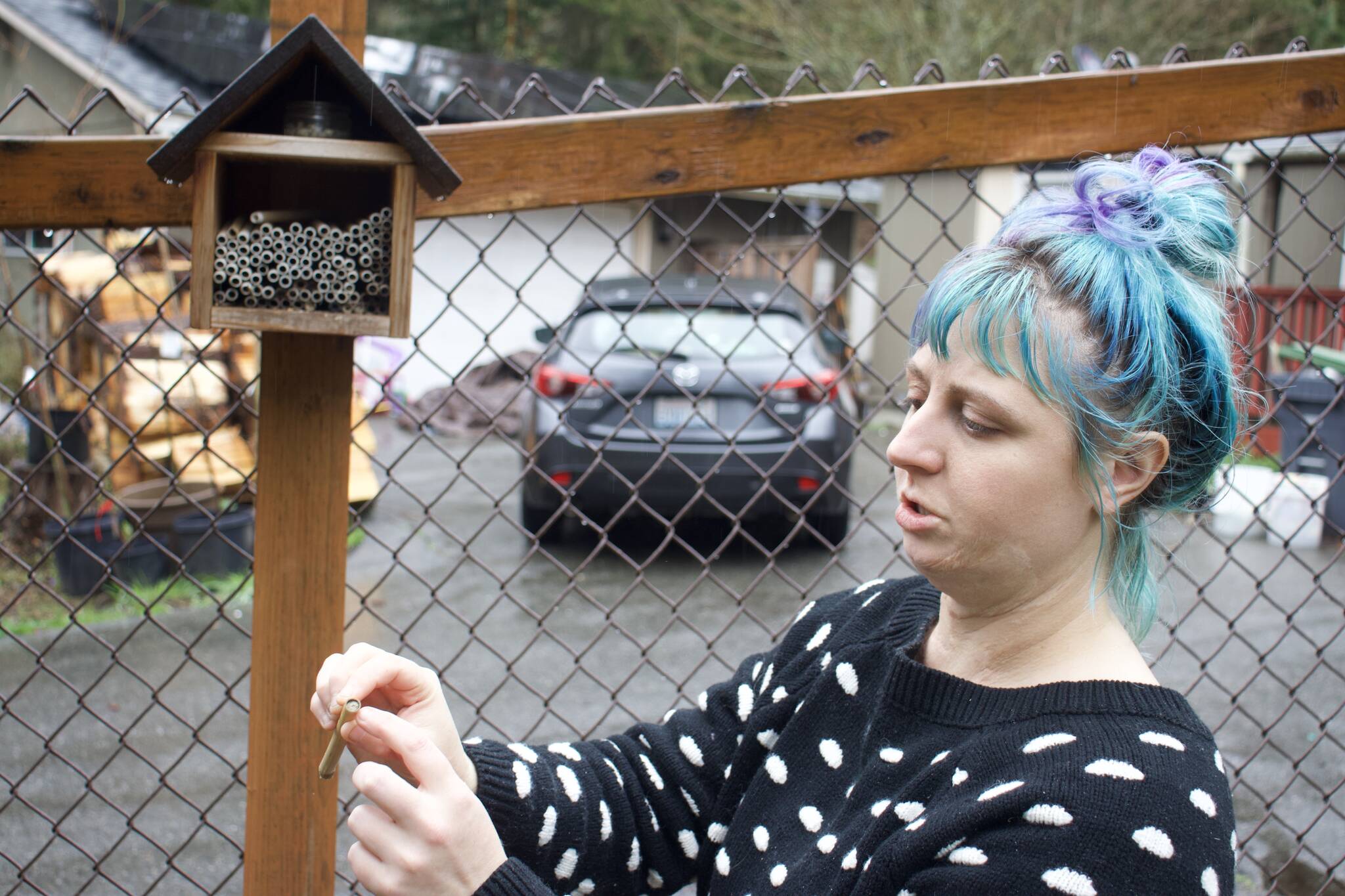While perhaps not as popular or well-known as their honey-producing cousins, one North Whidbey farmer wants people to know that mason bees are even better pollinators and are easier to raise in your backyard.
Elizabeth Agin, owner of Maya Farm, is teaching a class on mason bee pollination and hive building from 1-3 p.m. on April 16 at the Greenbank Progressive Club, facilitated by Slow Food Whidbey Island.
Agin has been farming for about five years and has been a beekeeper for two decades. Maya Farm produces a wide variety of goods including eggs, vegetables, honey and beeswax candles. Agin keeps both honey and mason bees, but she thinks mason bees are more appropriate for hobbyists and people who want to start beekeeping in their gardens.
“I’m trying to push more for mason bees for the community because of all the things that I’ve learned in my own experience raising bees,” she said.
Instead of living in a hive, mason bees lay their eggs in holes. To raise mason bees, all one needs is several bamboo or paper tubes that are kept in a small wooden box similar to a birdhouse. Agin said this is more feasible and easier than raising honey bees, which involves heavy lifting and equipment that costs upwards of $1,000.
“It’s a very expensive hobby,” she said. “And 80% of new (honey) beekeepers fail within the first three years.”
Agin said mason bees are very relaxed and tend not to sting people, which is why no protective equipment is needed. Additionally, she said that backyard beekeepers don’t always care for the honey bees in a way that maximizes their health and that can spread disease.
Keeping mason bees also does not involve as much time as raising honey bees. The activity is good for families who want their children to be involved. The downside, of course, is that mason bees do not produce honey, but they are still great for gardens and pollinating fruit and vegetable plants.
Agin said mason bees are three times better at pollinating gardens than honey bees. While honey bees are very meticulous in how they collect pollen, mason bees are covered in tiny little hairs that get inadvertently covered in the substance. As a result, they spread more pollen around.
In the fall, Agin collects the cocoons that have been laid in the bamboo tubes of the mason bee house. She peels them open and collects each cocoon which she said look like “tiny little alien capsules.”
“You actually clean them, which always freaks people out because you actually dunk them in a light bleach solution,” she explained.
The solution sterilizes the cocoon and prevents disease. She then stores the cocoons in her fridge from October to March. She said they can be left outside during that time, but it increases the risk that the cocoons will be eaten by predators.
Come spring time, she places the cocoons back into their bee house. When the weather is warm enough, the bees emerge from the cocoons and the cycle starts anew.
This time of year, Agin said she goes outside every day to see which cocoons have hatched. Other solitary bees will also lay their eggs in the mason bee house, including some beneficial wasp species.
“So you’re really supporting an ecosystem of pollinators by raising mason bees,” she said.
Agin has several mason bee houses on her property and said each bee lays upwards of 10 cocoons, so it’s easy to quickly grow the colony. She is bringing some of her own cocoons to the class so people can get started right away.
The class will include a segment on how to build mason bee homes and everyone will take one home.
To attend, contact Kathy Floyd at kathy46@whidbey.com. The cost is $15 for members, $20 for non-members and $10 for children age 7 and older. There is no cost for children under the age of 7.


